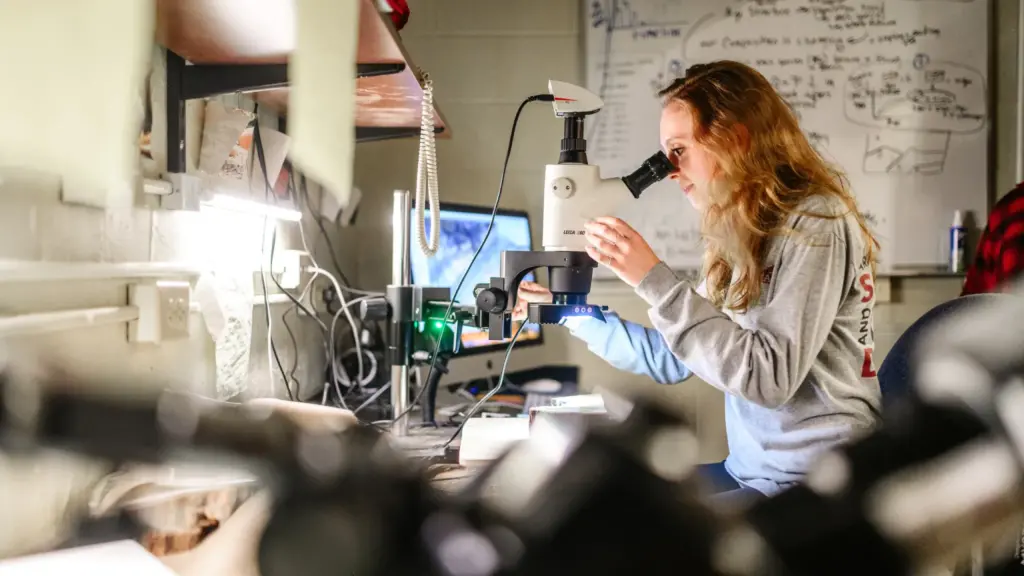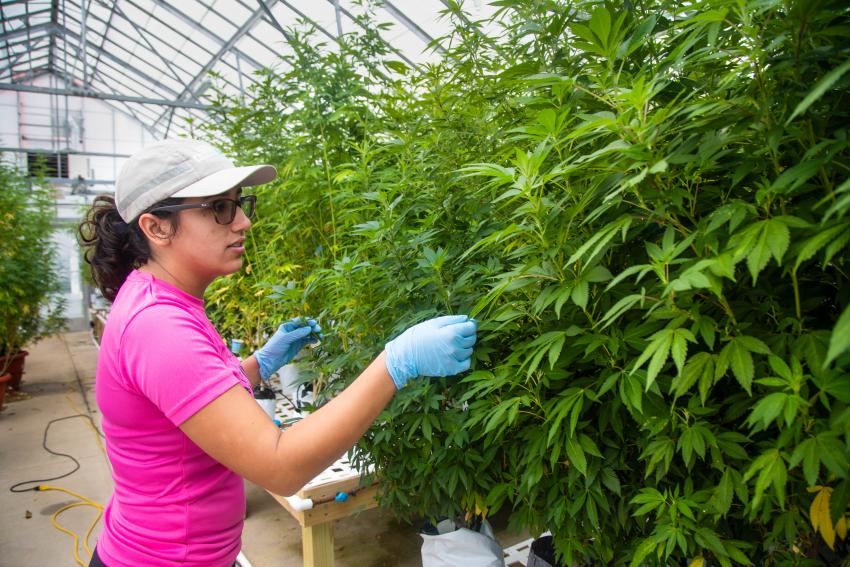- A Prospective Student
- A Parent/Family Member
- A Current Student
- An Alumnus / Alumna
- A Faculty / Staff
- Apply
- Deposit
- Visit
- Give
- Request Information
- Majors and Programs
- Accelerated Law Programs, BA to JD
- Accounting Major
- Acting Major
- Actuarial Science Major
- Agribusiness Minor
- Applied Behavior Analysis Early Entry Master’s Program
- Applied Behavior Analysis (ABA), Online Graduate Certificate
- Applied Behavior Analysis (ABA), Online MEd
- Applied Statistics Major
- Art + Technology Major
- Art Education Certification, MEd
- Art Education, PK-12 Certification
- Art History Major
- Art Major, BFA
- Art Therapy Major
- Arts and Global Change Major
- Arts Administration Major
- Arts Entrepreneurship and Curatorial Studies Minor
- Astronomy Minor
- Autism, Online Graduate Certificate
- Behavioral Health, Online MS
- Biochemistry Major
- Bioinformatics Minor
- Biology Major
- Biology Education Certification
- Business Administration Major
- Chemistry Major
- Child and Family Therapy Certificate
- Cinema Studies Minor
- Computer Science Major
- Digital Design and Computing Technology Major
- Counseling, MAC
- Counseling, MA and International Peace and Conflict Resolution, MA
- Counseling, MA and Public Health, MPH
- Creative Writing Major
- Creative Writing, MFA
- Criminology and Criminal Justice Major
- Cultural Anthropology Major
- Data Analytics Minor
- Data Science Major
- Displacement Studies and Human Rights Major
- Early Childhood Education, MEd
- Early Entry Counseling, MA
- Early Entry Education Master’s Program
- Economics Minor
- Education Studies Major
- Educational Leadership Certificate
- Educational Leadership, EdD
- Educational Leadership, MEd
- Educational Leadership, Online EdD
- Educational Leadership, Online MEd
- Education PreK-4 Major
- Education PreK-4 Major: Online Program
- Education, Secondary Certification
- Engineering, Combined Program
- English Education Certification
- English, MA
- English Major
- ESL Program Certificate
- ESL Program Specialist PK-12 Certification
- Equity, Inclusion and Opportunity in Special Education, MEd
- Endorsement in STEM
- Exploratory Studies
- Forensic Investigations Minor
- Forensic Science, MS
- French and Francophone Studies Major
- Gender and Sexuality Studies Major
- General Science Education Certification
- Global Media Major
- Health Equity, Online Graduate Certificate
- Healthcare Administration Major
- Healthcare Finance, Online Graduate Certificate
- Health Professions Post-Baccalaureate Certificate
- Health Sciences Major
- History Major
- Individualized Masters Program
- Integrative STEM Education, MEd
- Interdisciplinary Science Major
- International Business and Culture Major
- International Peace and Conflict Resolution, MA
- International Peace and Conflict Resolution, MA and International Relations and Diplomacy, MA
- International Peace and Conflict Resolution, MA and Public Health, MPH
- International Relations and Diplomacy, MA
- Global Studies Major
- International Relations, Diplomacy, and Law Major
- Italian Cultural Studies Major
- Japanese Minor
- Jewish Studies Minor
- Law and Public Policy Major
- Literacy Instruction Certificate
- Literacy Studies: TESOL and Reading, MEd
- Marketing Major
- Mathematics Education Certification
- Mathematics Major
- MBA, Online
- Media and Communication Major
- Medical Spanish Certificate
- Movement Science, PhD
- Music Minor
- Neuroscience Minor
- MPH, Online
- Peace and Conflict Resolution Major
- Peace Corps Prep Certificate
- Philosophy Major
- Optometry, Combined Program
- Organizational Leadership, Online Graduate Certificate
- Orthopaedic Residency and Musculoskeletal Certificate
- Physics Minor
- Physical Therapy DPT On-Campus
- PA Director Credential
- Pan-African Studies Major
- Physician Assistant Program
- Physical Therapy, DPT Hybrid
- Physical Therapy, DPT and Public Health, MPH
- Physical Therapy, Transitional DPT
- Political Science Major
- Post Master’s Program in Counseling for Licensure Readiness
- Pre-Forensic Science
- Pre-International Peace and Conflict Resolution
- PreK-4 Education Certification
- Pre-Medical
- Pre-Nursing
- Pre-Occupational Therapy
- Pre-Physical Therapy Accelerated (3+DPT)
- Pre-Physical Therapy (4+DPT)
- Pre-Physician Assistant
- Principal PK-12 Certification
- Professional Leadership, Online MS
- Program Planning, Online Graduate Certificate
- Psychology Major
- Public Health Major
- Master of Public Health
- Public Health, MPH and Physician Assistant, MMS
- Reading Education, MEd
- Reading Specialist, PK-12 Certification
- Rehabilitation Science, MS
- Religious Studies Minor
- Sciences Post-Baccalaureate Certificate
- Scientific Illustration Major
- Secondary Education, MEd
- Social and Emotional Learning, Online MEd
- Social, Emotional, Behavioral, and Cultural Wellbeing, Online Graduate Certificate
- Social Studies Education Certification
- Social Studies Education Major
- Sociology Major
- Spanish Cultural Studies Major
- Spanish Major
- Special Education, Online MEd
- Special Education PK-12 Certification
- Sport Management Major
- Sports Physical Therapy Residency
- Statistics Minor
- STEM Education Certificate
- Studio Art, BA
- Superintendent’s Letter of Eligibility Certification
- Supervisor of Curriculum and Instruction Certification
- Supervisor of Pupil Personnel Services Certification
- Supervisor of Special Education Certification
- TEFL: Teaching English Abroad
- Theater Arts Major
- Trauma Certificate
- World Cinema Minor
- Academics
- Admissions
- Home
- Life at Arcadia
- Study Abroad
- About Arcadia
-
-





